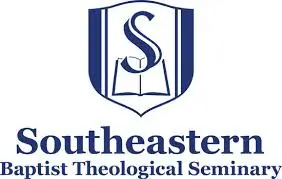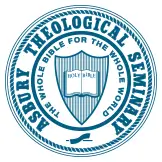As ministry landscapes shift to meet the needs of diverse and growing communities, the demand for leaders with strong theological grounding and visionary leadership continues to rise. A Master of Church Planting Online equips future ministry leaders with the biblical knowledge, strategic skills, and missional mindset needed to establish and grow new congregations. The curriculum typically integrates theology, evangelism, leadership development, and community engagement to prepare graduates for effective church multiplication. Liberty University, Regent University, Southeastern Baptist Theological Seminary, and Asbury Theological Seminary offer flexible online programs that allow students to balance academic study with active ministry. These institutions emphasize both theological depth and practical application, often including fieldwork, mentorship, and mission-focused projects.
Courses may cover church growth strategies, discipleship models, cross-cultural ministry, and organizational leadership. Students are encouraged to evaluate factors such as denominational fit, faculty expertise, and global mission opportunities when choosing a program. Graduates emerge prepared to plant and lead churches that are biblically grounded, culturally relevant, and equipped to impact communities with the gospel in diverse ministry contexts.

Highly Ranked Master of Church Planting Online Programs
| Logo | Name of the University | Description |
|---|---|---|
| Liberty University | Offers a fully online format with courses in missional leadership, evangelism strategies, and church growth, integrating biblical studies with practical training for effective church planting and ministry impact. | |
| Regent University | Provides flexible distance learning with an emphasis on theological foundations, spiritual formation, and community outreach, preparing leaders to establish and nurture new faith communities globally. | |
 | Southeastern Baptist Theological Seminary | Features rigorous online coursework combining doctrinal depth, pastoral care, and mission strategy, designed to equip ministry leaders for planting healthy, sustainable churches in diverse cultural contexts. |
 | Asbury Theological Seminary | Delivers a biblically grounded curriculum blending leadership development, discipleship models, and cross-cultural engagement, enabling students to launch and shepherd churches that thrive in changing ministry environments. |
Program Aspects & Considerations
When selecting an online Master of Church Planting program, important aspects and considerations include:
Accreditation and Reputation: Ensuring the program and institution are accredited by a recognized agency is crucial for degree credibility.
Theological Perspective: Considering if the program’s theological viewpoint is consistent with an individual’s personal beliefs and ministry context.
Curriculum Focus: Verifying the program offers courses that address both the theological and practical aspects of planting a church.
Faculty Expertise: Researching faculty’s experience as both academics and successful church planters is vital for practical mentorship.
Program Flexibility: Assessing if the learning format (asynchronous vs. synchronous) and pacing fit an individual’s schedule and ministry commitments.
Practicum or Internship: Evaluating if the program offers hands-on, supervised experience in a real-world church planting setting.
Cost and Financial Aid: Comparing tuition, potential financial aid, and scholarships to ensure a financially feasible option.
Admissions Requirements: Checking for specific prerequisites, such as a bachelor’s degree in theology or a ministry-related field, is a key step.
Networking Opportunities: Investigating how the program facilitates connections with peers and professionals in church planting networks.
Student Support Services: Checking for online resources like academic advising, technical assistance, and career counseling for students.
Top Accredited Master of Church Planting Online Programs (2025 Rankings)
Accredited online Master of Church Planting programs provide comprehensive training that blends theological education with practical strategies for starting and leading new churches. The curriculum is designed to equip leaders with the necessary skills in evangelism, discipleship, and community engagement. These programs also offer valuable insights into organizational development and missional leadership, preparing graduates to navigate the unique challenges of modern church planting and build thriving, biblically-based communities. Here are the best accredited universities that offer a Master of Church Planting Online:
To Link to this page, please copy and paste this code into your website
<a href="https://www.onlinemasterscolleges.com/master-of-church-planting-online/">Master of Church Planting Online</a>
Code copied successfully!
1. Liberty University- Master of Church Planting Online
Liberty University’s online Master of Arts in Church Planting program is designed to equip leaders with the strategic and theological skills to establish new churches effectively. The program emphasizes the practical application of biblical principles, preparing graduates to navigate the unique challenges of modern ministry. Through a curriculum that covers evangelism, community engagement, and organizational development, students are equipped to become dynamic leaders capable of growing vibrant, biblically-based congregations. The flexible online format is ideal for those already in ministry who wish to pursue advanced training.
Highlights:
- Internship Opportunities: Features a required internship for hands-on experience in a real-world church planting setting.
- Biblical Foundation: The program is grounded in Scripture, providing a strong theological foundation for ministry leadership.
- Faculty Mentorship: Learn from faculty with extensive experience in ministry and church planting.
Quick Facts:
| Program Length | Credits | Cost Per Credit | Accreditation | GRE Required |
| 2 years (full-time) | 36 credits | $410 (2025-2026, part-time School of Divinity rate) | Southern Association of Colleges and Schools Commission on Colleges (SACSCOC) | No |
Why It Made Our List: This program stands out for its unique blend of practical, hands-on experience through a required internship and a curriculum that is firmly rooted in a biblical worldview.
2. Regent University- Master of Church Planting Online
3. Southeastern Biblical Theological Seminary- Master of Church Planting Online
4. Asbury Theological Seminary- Master of Church Planting Online
Source – Integrated Post Secondary Education Data System & University Data
*Tuition rates are for in-state and per year. Program-specific rates may apply.
**NA – data not available
Our Ranking Methodology: How We Chose the Best Master of Church Planting Online Programs
The selection of the best Master of Church Planting Online programs involved assessing curriculum strength, faculty credentials, accreditation, affordability, and practical ministry components. In the middle of the evaluation process, the team at OMC used its methodology to analyze flexibility, student support, and theological depth. Emphasis was placed on identifying programs that combine academic rigor with real-world application, ensuring graduates are equipped to establish and lead impactful, biblically grounded congregations in diverse ministry settings.
Why Choose a Master of Church Planting Online
Choosing a Master of Church Planting Online offers the flexibility to pursue advanced ministry training while remaining active in current service roles. These programs provide access to experienced faculty, diverse peer networks, and resources tailored for effective church leadership. Online learning allows engagement with real-world ministry challenges in real time, fostering practical application. Graduates gain the strategic, cultural, and theological expertise needed to launch and grow healthy congregations in various contexts.
Benefits of Online Learning
The online programs are recognized for their flexible and accessible nature, offering numerous advantages for diverse learners.
- Flexibility and Convenience: Study from anywhere, at any time, fitting coursework around work, family, and other life commitments.
- Accessibility to Programs: Access top-tier programs regardless of your geographical location or physical limitations.
- Self-Paced Learning: Progress through course material at your own pace, revisiting complex topics or accelerating through familiar ones.
- Reduced Costs: Saves money on commuting, housing, and other associated living expenses compared to on-campus study.
- Diverse Perspectives: Interact with a global cohort of students and faculty, enriching your understanding of varied cultures.
- Technology Skill Development: Enhance digital literacy and comfort with online learning platforms, valuable for modern professional environments.
- Continued Employment: Maintain current employment or ministry roles while simultaneously pursuing advanced academic qualifications.
- Personalized Learning: Many platforms offer adaptive content and resources, catering to individual learning styles and needs effectively.
- Immediate Application: Apply newly acquired knowledge directly to a current professional setting, enhancing practical skills and growth.
Growing Demand for Church Planting Professionals
- High Demand: Increasing global and local community needs create significant opportunities for leaders trained to plant, grow, and sustain churches, particularly in underserved or rapidly changing cultural and demographic contexts.
- Versatile Skills: Graduates develop adaptable abilities in leadership, cross-cultural communication, strategic planning, and ministry development, enabling effective service in diverse settings such as missions, community outreach, pastoral work, and organizational leadership.
Industries Hiring Church Planting Professionals
Industries hiring Church Planting Professionals are in demand across a wide array of sectors. Here are some key industries:
- Religious Organizations: Roles as church planting pastors, associate pastors, or revitalization leaders in denominations and independent churches.
- Missionary Organizations: Both domestic and international mission agencies hire church planters for new community outreach.
- Church Planting Networks: These organizations support new church starts, hiring staff for coaching, training, and strategic development.
- Non-Profit Organizations: Faith-based non-profits and charities need leaders for community development and social action initiatives.
- Educational Institutions: Colleges and seminaries employ professors and administrators to teach church planting and missiology.
- Denominational Leadership: Denominations hire leaders to oversee church planting strategies and support new congregations.
- Creative and Media Industries: Professionals can work in Christian publishing, media, and technology to support church plants.
Master of Church Planting Online Curriculum Overview
The Master of Church Planting Online curriculum blends theological study with practical ministry training to prepare students for impactful church leadership. Students explore biblical foundations, leadership principles, mission strategy, and cultural engagement, gaining tools to address diverse ministry challenges. The program emphasizes hands-on application through fieldwork or internships, allowing students to translate academic learning into effective church-planting practice. This balanced approach equips graduates with both the spiritual insight and strategic skills needed to launch and nurture thriving congregations.
Core Courses and Electives
Core Courses
- Theological Foundations of Church Planting: This course explores biblical and doctrinal principles that guide church establishment, emphasizing scriptural authority, missional purpose, and theological clarity. Students learn to integrate faith-based convictions with practical strategies for starting and sustaining vibrant, biblically grounded congregations in diverse cultural contexts.
- Calling and Character of the Church Planter: This course examines the spiritual readiness, personal integrity, and leadership qualities essential for ministry success. Students assess their unique calling, develop Christ-centered character, and cultivate habits that sustain resilience, relational health, and long-term effectiveness in church planting and leadership roles.
- Tools for Ministry Studies: This course introduces essential skills and resources for effective ministry, including research methods, communication techniques, and strategic planning. Students gain practical competencies to address administrative, relational, and outreach needs within dynamic church-planting environments while adapting to various cultural and community contexts.
- Foundations of Christian Theology: This course covers core doctrines and theological concepts shaping the Christian faith, providing a framework for ministry decisions. Students develop the ability to apply theological understanding in preaching, teaching, and guiding new congregations toward biblical maturity and mission alignment.
Specializations
Specializations enable students to tailor their studies, focusing on specific areas of ministry that align with their callings. This allows for an in-depth exploration of topics beyond the core curriculum, such as cross-cultural ministry, evangelism, or urban contexts. By concentrating on a particular area, students can develop specialized skills and a deeper knowledge base, preparing them to meet the unique needs of a specific community or ministry setting.
Capstone Projects and Hands-On Learning
Here are the key features of capstone projects and hands-on learning in a Master’s in Church Planting:
- Church Planting Plan: Students often develop a comprehensive church planting strategy, including a mission statement, budget, and a detailed plan for the first two years of ministry.
- Field-Based Practicum: A practicum or internship allows students to gain real-world experience by serving alongside an experienced church planter in a local congregation.
- Dissertation or Thesis: Some programs require a final research project where students investigate a topic relevant to church planting, such as contextual evangelism or leadership development.
- Curriculum Development: A student may choose to create a new discipleship or leadership training curriculum specifically for new churches in a particular community.
- Missional Residency: A residency can provide an immersive experience, with students living and working with a church planting team for an extended period.
- Case Study Analysis: Students analyze successful and unsuccessful church plants, applying principles from the curriculum to understand factors that contribute to growth or decline.
- Mentored Internship: An internship provides one-on-one mentorship with a seasoned church planter, offering personalized guidance and feedback on ministry skills and character.
Master of Church Planting Online Admission Requirements
General requirements for online Master of Church Planting programs typically include:
- Accredited Bachelor’s Degree: A bachelor’s degree from a regionally or nationally accredited institution is a prerequisite.
- Minimum GPA: A minimum undergraduate GPA, often 2.0 to 3.0, is typically required for admission consideration.
- Official Transcripts: Submission of all official academic transcripts from previously attended colleges and universities is necessary.
- Letters of Recommendation: Recommendations from academic or pastoral references who can attest to an individual’s potential are often required.
- Statement of Purpose: An essay explaining a student’s calling to ministry, academic goals, and why they chose the specific program.
- Ministry or Leadership Experience: Some programs require a certain amount of prior ministry or leadership experience.
- Resume/CV: A professional resume or CV highlighting relevant ministry, work experience, and educational background is often required.
- GRE Scores: While many programs have waived the GRE, some may still require it, particularly for applicants with a lower GPA.
Master of Church Planting Online No GRE Programs
The GRE (Graduate Record Examination) is a standardized test assessing verbal reasoning, quantitative reasoning, and analytical writing for graduate program admission. Many universities now waive it to increase accessibility, attract diverse applicants, and emphasize academic records, professional experience, and personal statements over standardized testing. Waivers also reflect recognition that test scores may not fully predict success in specialized fields like ministry, where practical skills and calling often outweigh quantitative measures.
Cost of a Master of Church Planting Online Program
The cost of a Master of Church Planting Online in the USA can vary significantly.
- Average Tuition Range: Tuition for a Master of Church Planting Online typically ranges from $12,000 to $25,000, depending on the institution, program length, credit requirements, and available financial aid or scholarships.
- Factors Affecting Cost: Total expenses vary based on accreditation, faculty expertise, technology fees, residency requirements, available resources, transfer credits, and whether the student attends full-time or part-time, influencing overall tuition and related costs.
Financial Aid and Scholarships for Master of Church Planting Online Programs
With rising tuition costs for graduate studies, student debt has become a growing concern for many pursuing advanced ministry training. Financial aid and scholarships for Master of Church Planting Online programs help offset expenses, reducing the need for large loans. These funding options—ranging from institutional grants to denominational awards—make education more accessible, enabling students to focus on developing ministry skills without the long-term burden of excessive financial obligations.
Scholarships and Grants
| Scholarship | Liberty University Scholarship |
| Description | Liberty University provides a range of scholarships for online students, awarded based on academic performance, leadership, memberships, or specific achievements. Each scholarship features distinct eligibility criteria and deadlines, encouraging early applications to maximize available opportunities. These awards help reduce tuition costs, making higher education more financially accessible for qualified students. |
| Award/Amount | Varies |
| Application Deadline | Varies |
| Scholarship | Charles B. Keesee Educational Fund |
| Description | The Charles B. Keesee Educational Fund, established in 1941, provides financial assistance to qualified Baptist students attending approved institutions. Funded by the estates of Charles and Olivia Keesee, it supports educational opportunities, primarily for ministry preparation, helping thousands reduce tuition costs and pursue their academic and vocational goals in Christian service. |
| Award/Amount | Varies |
| Application Deadline | Varies |
| Scholarship | Mary E. Bivins Foundation Scholarships |
| Description | The Mary E. Bivins Foundation Scholarships support graduate students preparing for Christian ministry, with a focus on pulpit ministry. Awarded primarily to residents of the Texas Panhandle, these scholarships provide significant financial assistance, helping recipients pursue theological education, develop leadership skills, and serve effectively in their future ministry and community roles. |
| Award/Amount | $10,000 |
| Application Deadline | Varies |
Tuition Assistance and Employer Sponsorships
Tuition assistance and employer sponsorships are financial benefits provided by organizations to help employees pursue higher education while working. Tuition assistance typically reimburses or directly pays part of educational costs, while employer sponsorships may cover full tuition in exchange for service commitments. These benefits reduce personal financial burden, encourage professional growth, and strengthen employee skills, enabling individuals to advance in their careers while contributing greater value to their organization or ministry setting.
Federal Student Loans and FAFSA
- Federal Student Loan: Government-funded loans offering fixed interest rates and flexible repayment options, helping graduate students cover tuition and related costs while deferring payments until after program completion.
- FAFSA: The Free Application for Federal Student Aid determines eligibility for federal loans, grants, and work-study programs, requiring financial information submission to match students with available funding opportunities for graduate education.
Master of Church Planting Online Careers and Salaries
Graduates of a Master of Church Planting Online are equipped for diverse roles in ministry leadership, mission strategy, and organizational development. The program cultivates skills in vision casting, team building, cultural engagement, and community impact. These capabilities open opportunities in various ministry settings, allowing graduates to influence spiritual growth and organizational health. Compensation varies widely based on location, experience, and organizational size, with potential for growth as leadership responsibilities expand. Some of the domains where a graduate of an online Master of Church Planting can find employment include:
| Job Title | Average Annual Salary | Key Responsibilities |
|---|---|---|
Pastor | $54,740 | Preach sermons, provide spiritual guidance.. |
Youth Pastor | $44,601 | Mentor youth, coordinate outreach events. |
| Chaplain | $59,517 | Offer spiritual care, support to individuals. |
| Church Worship Leader | $50,117 | Lead music, support worship planning. |
| Worship Coordinator | $40,092 | Schedule rehearsals, manage worship logistics. |
Accreditation for Master of Church Planting Online Programs
Accreditation for Master of Church Planting Online programs ensures academic quality, credibility, and alignment with recognized educational standards. Many theological programs hold accreditation from the Association of Theological Schools (ATS) or regional accrediting bodies. This recognition helps students access federal financial aid, ensures credit transferability, and enhances employment prospects. Accredited programs demonstrate rigorous curriculum standards, qualified faculty, and effective student support, giving graduates confidence that their education meets both academic and ministry preparation benchmarks.
How to Choose the Best Master of Church Planting Online Program for You
Here are some factors to consider when selecting an online Master of Church Planting program:
- Accreditation and Reputation: Ensuring the program and institution are accredited by a recognized agency is crucial for degree credibility.
- Theological Perspective: Considering whether the program’s theological viewpoint is consistent with an individual’s personal beliefs and ministry context.
- Curriculum Focus: Verifying the program offers courses that address both the theological and practical aspects of planting a church.
- Faculty Expertise: Researching faculty’s experience as both academics and successful church planters is vital for practical mentorship.
- Program Flexibility: Assessing if the learning format (asynchronous vs. synchronous) and pacing fit an individual’s schedule and ministry commitments.
- Practicum or Internship: Evaluating if the program offers hands-on, supervised experience in a real-world church planting setting.
- Cost and Financial Aid: Comparing tuition, potential financial aid, and scholarships to ensure a financially feasible option.
- Admissions Requirements: Checking for specific prerequisites like a bachelor’s degree in a theology or ministry-related field is a key step.
- Networking Opportunities: Investigating how the program facilitates connections with peers and professionals in church planting networks.
- Student Support Services: Checking for online resources like academic advising, technical assistance, and career counseling for students.
Frequently Asked Questions About Master of Church Planting Online Programs
What is a Master of Church Planting online program?
A Master of Church Planting Online is a graduate-level program designed to prepare students for starting and growing new congregations. It combines theology, leadership, and practical ministry skills, delivered through flexible online learning, allowing students to integrate studies with real-world ministry experience and personal commitments effectively.


